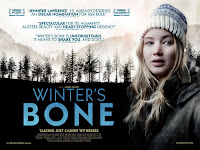 So far I think I've read everything Tom Franklin has published. To me he's one of the shining lights of contemporary fiction. Though I have to admit that I didn't care much for his previous novel Smonk, though, of course, it could be a case that I just didn't get it. For me, it was readable and entertaining, but it was also mindlessly violent, which, of course, might have been the point; but, if so, so what? However, I'm glad to say that Franklin is definitely back to his best in Crooked Letter, Crooked Letter. It's a literary crime novel that dares to venture outside the usual parameters of the genre. It is also, as the title suggests, a novel that deals with recent Mississippi history- the crooked latter referring to the spelling of the name of the state- in all its glory and degradation. As Dr Cornel West likes to point out Mississippi has given America some of its greatest artists- Robert Johnson, Muddy Waters, Jimmie Rodgers, Elvis, Charlie Patton, Faulkner, Eudora Welty, Tennessee Williams, Richard Wright, etc.. Today there are a surfeit of novelists from the state, not only Franklin, but late and lamented writers like Larry Brown and Barry Hannah. What they have in common is a deep knowledge of the landscape and its people, the literary equivalent of the Deep Blues that Robert Palmer describes in his book of that name. Accordingly, Broken Letter, Broken Letter not only portrays the relationship between the races, but, in doing so, investigates the way in which the past haunts the present and predicts the future. In a sense this these are concerns that other southern writers have examined, but not all that often within the context of a crime novel.
So far I think I've read everything Tom Franklin has published. To me he's one of the shining lights of contemporary fiction. Though I have to admit that I didn't care much for his previous novel Smonk, though, of course, it could be a case that I just didn't get it. For me, it was readable and entertaining, but it was also mindlessly violent, which, of course, might have been the point; but, if so, so what? However, I'm glad to say that Franklin is definitely back to his best in Crooked Letter, Crooked Letter. It's a literary crime novel that dares to venture outside the usual parameters of the genre. It is also, as the title suggests, a novel that deals with recent Mississippi history- the crooked latter referring to the spelling of the name of the state- in all its glory and degradation. As Dr Cornel West likes to point out Mississippi has given America some of its greatest artists- Robert Johnson, Muddy Waters, Jimmie Rodgers, Elvis, Charlie Patton, Faulkner, Eudora Welty, Tennessee Williams, Richard Wright, etc.. Today there are a surfeit of novelists from the state, not only Franklin, but late and lamented writers like Larry Brown and Barry Hannah. What they have in common is a deep knowledge of the landscape and its people, the literary equivalent of the Deep Blues that Robert Palmer describes in his book of that name. Accordingly, Broken Letter, Broken Letter not only portrays the relationship between the races, but, in doing so, investigates the way in which the past haunts the present and predicts the future. In a sense this these are concerns that other southern writers have examined, but not all that often within the context of a crime novel. The story is set in rural Mississippi where two boys- Silas, sports-minded and black, and Larry, bookish, introverted and white- become friends. The former is brought up by his mother, while the latter belongs to an only child in a lower middle class family. When, as teenagers, a white girl disappears, suspicion falls on Larry which, though he isn't charged with the crime, turns him into the town outcast. Meanwhile Silas moves away and comes back as the town's only law-enforcement officer. Then another girl disappears and, though years later, suspicion once again falls on Larry.
What some readers might not be so sure about here is the portrayal, now something of a cliche, that another bookish introvert is tagged as a potential killer. But Franklin plays with that cliche to great effect, while, at the same time, making sure no one is one-dimensional, much less completely innocent.
Not only does the narrative, shifting from present to past and back again, never veer from its goal, but there are any number of poetic passages, like the following:
"When he left, Larry amid his machines, thinking of Silas, how time packs new years over the old but those old years are still in there, like the earliest, tightest rings centering a tree, the most hidden, enclosed in darkness and shielded from weather. But then a saw screams in and the tree topples and the circles are stricken by the sun and the sap glistens and the stump is laid open for the world to see."
I don't know what it is about southern writers, but I seem to be reading more of them than ever: not just the likes of Franklin and Brown but William Gay and Tim Gautreaux, not to mention my recent foray into the world of Peter Taylor. But read Tom Franklin's Crooked Letter, Crooked Letter. You won't regret it.

